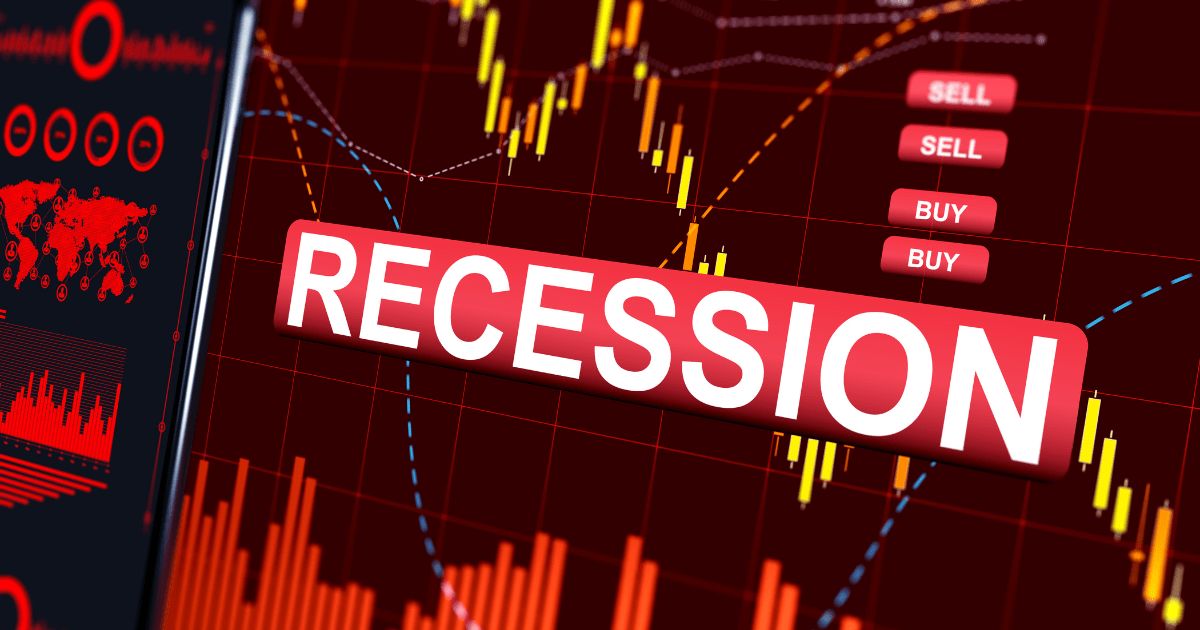Introduction
Economic recessions are inevitable occurrences in the global financial landscape. As a forex trader, it’s crucial to understand how to navigate the forex market during these challenging times. While the forex market is not recession-proof, there are strategies you can employ to protect your positions or capitalize on trading opportunities that arise during a recession. In this comprehensive guide, we will delve deeper into the intricacies of trading forex during a recession, exploring various strategies and factors to consider.
Understanding a Recession
Before diving into forex trading strategies, it’s essential to have a clear understanding of what constitutes a recession. A recession is typically defined as a period of reduced economic and industrial activity in which a country’s gross domestic product (GDP) contracts for two consecutive quarters. This contraction is often a result of declining consumer spending, reduced business investments, and decreased production levels. Monitoring economic indicators such as GDP, employment levels, inflation, and industrial output can help gauge the severity and duration of a recession.
Historical Perspectives on Recessions
To gain insights into how recessions impact the forex market, let’s examine historical perspectives. Between 2010 and 2020, the global economy experienced a prolonged period of economic prosperity characterized by low interest rates and inflation levels. This period followed the Great Recession of 2007-2009, the most severe economic downturn since the Great Depression. However, predicting the duration and severity of a recession can be challenging, leading to increased price volatility as analysts hold differing views on possible outcomes.
Forex Markets During a Recession
During a recession, forex markets may not react in the same way as other asset classes. While stock markets often decline during economic slowdowns, currencies function as a lubricant for the economic system rather than a tangible part of it. One observable trend during a recession is that currencies of stronger economies tend to gain value relative to those of weaker economies. Understanding the economic fundamentals of different countries and monitoring shifts in demand for their currencies can provide valuable insights for forex traders.
Currencies That Perform Poorly During a Recession
Successful forex trading during a recession requires thorough research and monitoring of key data points, such as interest rates. In an economic contraction, central banks and governments often implement measures to support the economy. One of the most effective tools at their disposal is adjusting interest rates. Lowering interest rates can stimulate economic activity by reducing borrowing costs, increasing cash flow, and encouraging spending and production. As interest rates decrease, returns to savers decline, which can lead to a shift in demand for currencies offering higher interest rates.
Currencies That Perform Well During a Recession
Conversely, currencies of countries with stronger economies tend to perform well during a global recession. Central banks in these economies may be more concerned with controlling inflation rather than stimulating growth. Consequently, interest rates may remain higher, attracting investors seeking better returns. During a recession, safe-haven assets like the US dollar and Swiss franc often experience increased demand due to their perceived stability, acting as a hedge against market uncertainties.
Forex Strategies During a Recession
When trading forex during a recession, your approach and choice of strategies can significantly impact your success. Here are some strategies to consider:
- Investment Timelines: Given the potential duration of recessions, carefully consider your investment timeline. Long-term investors may focus on fundamental analysis and hold positions for extended periods, while day traders may capitalize on short-term price fluctuations.
- Sell Short and Buy Long: Forex trading involves buying one currency and selling another simultaneously. During a recession, you can capitalize on the relative strength or weakness of currencies by short-selling the weaker currency and buying the stronger one.
- Risk Management: Managing risk is crucial during recessionary periods. Consider implementing proper risk management techniques such as setting stop-loss orders, diversifying your portfolio, and avoiding excessive leverage.
- Technical Analysis: Utilize technical analysis tools and indicators to identify potential entry and exit points. Price patterns, support and resistance levels, and momentum indicators can provide valuable insights for making informed trading decisions.
- Stay Informed: Stay updated with economic news, central bank announcements, and geopolitical developments that can impact currency movements during a recession. News events can create significant market volatility, presenting both risks and opportunities.
Key Takeaways
- Trading forex during a recession requires an understanding of economic indicators and market dynamics.
- Currencies of stronger economies tend to perform well during a recession, while weaker economies may experience currency depreciation.
- Strategies such as short-selling, risk management, technical analysis, and staying informed are essential during recessionary periods.
- Thorough research, analysis, and disciplined risk management are crucial for success in forex trading during a recession.
- Forex trading during a recession can present both risks and opportunities. It’s important to approach it with caution, adapt to changing market conditions, and seek professional advice if needed.
Remember, forex trading involves risks, and past performance is not indicative of future results. Always conduct thorough research, seek professional advice, and trade responsibly.








